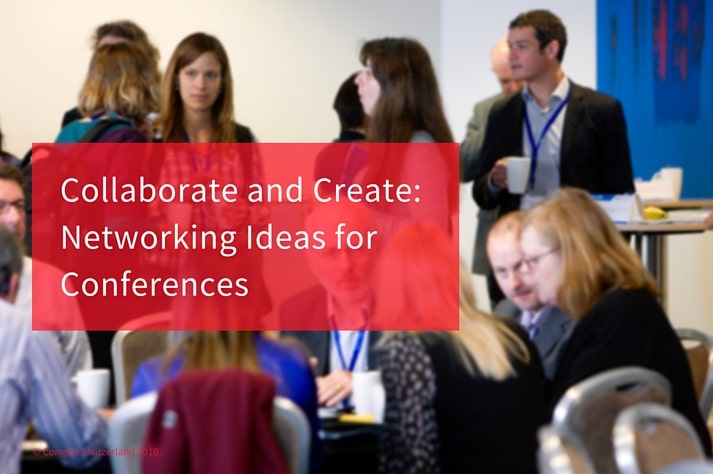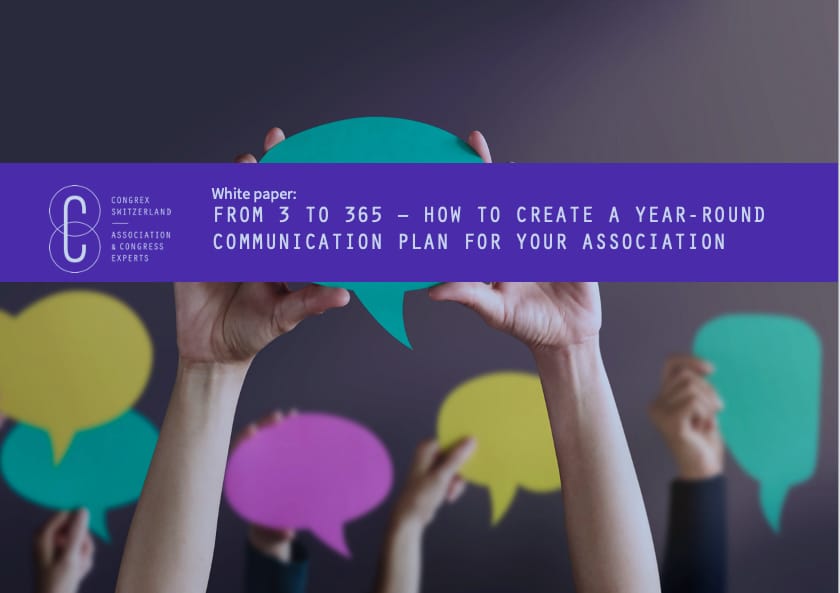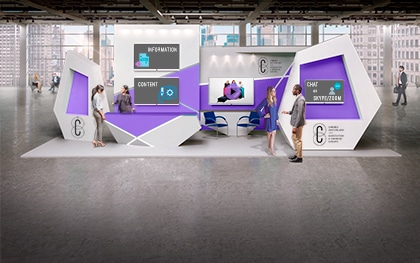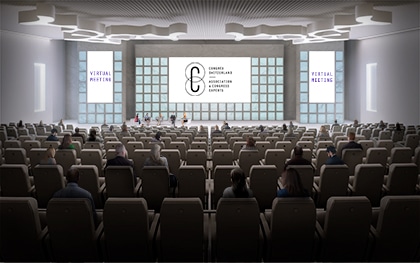Networking ideas for conferences.
Conference organisers are increasingly placing networking opportunities at the forefront of their events programmes. The reasoning behind this trend is no secret. Networking is consistently cited as one of the most attractive elements of conferences among attendees: second only to information gathering and the opportunity to learn. Conference organisers appreciate that events which provide positive networking opportunities are viewed more favourably among visitors. In turn, good will among delegates is likely to translate into higher attendance figures for future events. This mutually beneficial arrangement is inspiring today’s events planners as they redefine their roles: becoming an active ally for the networkers amongst their guests.
In this article, we examine a selection of networking ideas for conferences. We consider how they may be used to improve the user experience of those in attendance, and consolidate the reputation of the event itself.
Reach out online: early doors for event networking
Digital technology has transformed networking into a 24 hour-a-day operation, where the boundaries between our social and professional lives are becoming increasingly indistinct. Social media has played a major role in this transformation, and these online platforms offer some of the best means for initiating conference connections and meetings.
Related blog: How to Focus Effective Digital Marketing for Associations – Part II: Messaging
Events planners are facilitators, and should aim to cultivate an online community prior to each event. User participation in digital communities should be almost effortless at the initial stage: a social media hashtag, or a downloadable mobile app with timetables and event data, for example. However, additional participation should be incentivised: a scheduled meeting with a keynote speaker for the most active online contributors will create an immediate buzz.
The aim at this stage is to foment creative collaboration; a healthy digital presence is one where users are discovering their own uses for the platform you have created. When delegates are raising points of discussion, or arranging face-to-face meetings with their peers before the conference doors have even opened, the hosts have built the foundations for a successful event.
The science behind efficient conference networking
Good networking is not an art: it is a science. Understanding the theory of networks is a powerful tool for organisers when developing networking ideas for conferences.
Different network structures provide varying results in terms of user experience and efficiency. Networks where every participant connects directly to multiple other users are termed distributed networks. Systems where individuals are connected indirectly, through a single, intermediary hub, are known as centralised networks. Studies into the way information disseminates across social groups consistently identify distributed networks as more efficient systems for communicating original data, not centralised models.
Related blog: The Future is now: Identifying current Trends in Association Management
This contradicts the conventional assumptions of many delegates, who focus attention on a small number of “Power Networkers,“ while ignoring the crowds orbiting them.Yet, within a centralised network, every user can only access the same, centrally shared information. This creates internal competition, rather than collaboration. Meanwhile, a distributed network allows participants to seek and share original data, based upon the quality and relevance of that information to the individual user. Conference organisers should encourage visitors to break old habits and discover ways to network with individuals on the periphery of every group.
Productive Playtime: putting theory into practice
An understanding of theory is only valuable if it can be put into practice, however. The way many leading events planners have achieved this brings us to our final point of discussion: the gamification of networking.
When we talk about gamification, we mean the act of turning a process with a tangible goal into a rewarding experience in its own right; where the original objective becomes a reward for participation. Selecting activities requires an intimate knowledge of visitors‘ expectations. Quizzes and contests provide competitive elements; social spaces devoted to “speed meeting” – networking in the style of speed dating – will create intuitive talking points when visitors might otherwise struggle to establish a natural common ground.
Gamified networking is incredibly effective. When we collaborate and share enjoyable experiences, we form connections that are emotionally, and neurologically, stronger. In this respect, turning networking into playtime can achieve some of the most rewarding user experiences for today’s conference networkers.
——
Congrex Switzerland is an internationally operating agency delivering integrated solutions especially for non-profit clients. This encompasses the overall organisation of conferences including the management of hotel rooms and the strategic consultancy of associations. Annually Congrex Switzerland organises approximately 33 conferences with over 73’000 delegates. Amongst our clients are international associations, governmental organisation and corporations.
If you wish to receive additional information about Congrex Switzerland, please feel free to contact us.
Schlagworte: Centralised networks, Distributed networks, Gamification, Keynote speaker, Networking
Technologie/Trends: Digitales Marketing für Kongresse, Erfahrung der Delegierten, Konferenz-Erfahrung, Konferenz-Trends, Konferenzdesign, Kongress und Event Speaker, Kongresse für Verbände, Meeting-Management, Networking-Veranstaltung, Planung von Konferenzen, Professioneller Kongressorganisator, Soziale Medien für Kongresse, Teilnahme an dem Kongress, Veranstaltungstechnik




